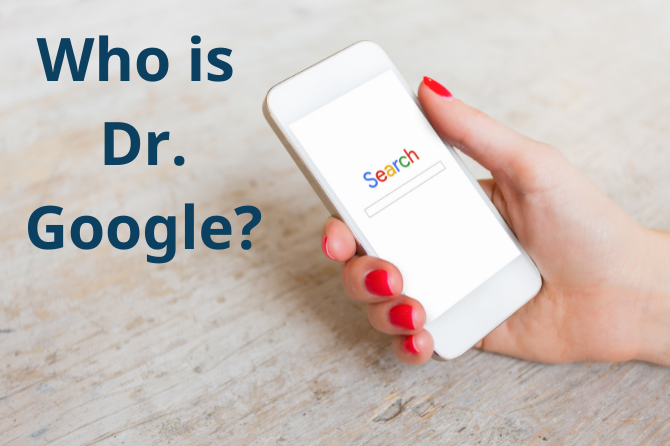SHARE
In today’s digital age, we’re accustomed to seeking information online, especially when it comes to our health. Approximately 7% of Google searches are health-related, translating to about 6.7 million daily health inquiries. However, it’s essential to remember that while the internet offers a wealth of health-related content, the vast majority of it is not authored by medical professionals. In this blog post, we’ll explore why patients often turn to “Dr. Google” for medical advice and why this might not be the best approach.
Why Patients Research Symptoms on Google
- Convenience: It’s as easy as opening a web browser on your device and typing in your symptoms. However, the challenge arises when you’re inundated with countless search results. Who can you trust? Are some of these websites sponsored advertisements?
- Curiosity: Naturally, you want to gather information before consulting a doctor. But how often have you felt more confused after your online research than when you started?
- Lack of Access to a Doctor: In the United States, access to doctors, especially specialists, can be limited. Appointments often entail long waiting times. This can increase stress and push individuals to seek answers and remedies online.
The Reality of Doctor Visits
Even when you secure an appointment with a healthcare provider, the typical visit lasts only 7-12 minutes. This leaves little time to discuss your medical history thoroughly, ask questions, or address your concerns adequately. The frustration stemming from long waits and rushed appointments is entirely understandable.
The Pitfalls of Dr. Google
Despite the wealth of information available online, “Dr. Google” lacks medical credentials and clinical experience. While the internet can provide insights, it should never replace the expertise of a qualified physician. Furthermore, online searches can often lead to heightened stress and anxiety, as they may point to common, sporadic, or even life-threatening conditions.
A Better Approach: Consult a Real Physician
Instead of relying solely on “Dr. Google,” consider seeking the guidance of a qualified medical professional. Here are a few reasons why:
- Medical Expertise: A real doctor has the training, knowledge, and clinical experience necessary to provide an accurate diagnosis and treatment plan.
- Time and Attention: At our practice, we prioritize spending adequate time with our patients. We understand the importance of hearing your full medical history, answering your questions, and addressing your concerns.
- Prompt Responses: We offer direct access to our physicians, ensuring that your queries are answered promptly and comprehensively.
- Trusted Resources: If you’re looking for additional sources to supplement your medical understanding, we can provide you with reputable and trusted resources.
In Conclusion:
While the internet can be a valuable source of information, it should complement, not replace, the care of a qualified healthcare provider. “Dr. Google” might offer insights, but it lacks the expertise and personalized care that a real physician can provide. Don’t let online searches lead to unnecessary anxiety. Seek the guidance of a medical expert who can offer a tailored approach to your health concerns.

About the Author

Diana Girnita, MD, PhD is an US board certified internal medicine and rheumatology. She completed a PhD in immunology, postdoctoral fellowship at Harvard University, immunology fellowship at University of Pittsburgh and rheumatology fellowship at University of Cincinnati. She is the founder&CEO of Rheumatologist OnCall, a telemedicine company that serves multiple states in the US. Dr. Girnita is a graduate of the Nutrition Science course from Stanford University. Dr. Girnita was recognized many times with “Top Doctor” award (2017-2020) and is frequently invited speaker of the US National Arthritis Foundation. Read more














